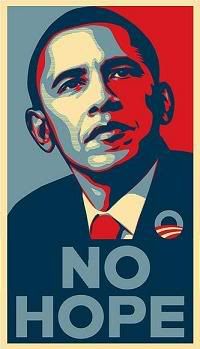Update 3-30
Finally finished the overly long Atlas Shrugged and it could have been written in 1/3 the pages. I think that Rand and Marx made opposite but equal errors. (4+4=10 and 4+4=6 are equally wrong in opposite directions.) though I don't consider her dangerous at the moment because 1) she honestly values freedom and is thus less dangerous 2) her followers are not in power. I think a lot of her problem was her childhood where she saw the folly and dangers of Marxism up-close and personal but she failed to see the dangers of absolute self-interest as well. Another of her flaws is that she believes that pure rationalism would eliminate all conflict but I would respond that immortality for all would cure death. Robert Heinlein (whom I also regard with mixed admiration and disdain) almost answered her with a line from his book Tunnel in the Sky.
Man is not a rational creature. He is a rationalizing creature.
Humanity will be rational as long as it is in their benefit to do so. What happens when self-interest and rationalism collide? - - as they will. Sadly she and Marx started from the same basic assumptions (materialism and blind rationalism) but went in totally different directions. The problem with both philosophies is the foundation.
How about this idea from an even older work of fiction?
All for one and one for all!
I prefer to operate on this idea. Do all you can do for yourself, your neighbor, your family, your friends, your community, your nation etc. Do what you can do and if you produce more you will live better and be able to provide more help to others.
One thing I liked about the book Starship Troopers was the idea that citizenship was not granted but earned by service to the nation and I think there is something to Heinlein's idea of earned citizenship and earned franchise. He divided humanity into citizens and residents on the basis of military service along the theory that those who volunteered to risk their lives for the body politic would handle it more responsibly than those who simply wanted to get what they could out of it. Of course there are flaws in this (primarily that there should be alternate -- but equally demanding and materially unrewarding -- paths to citizenship but that's another issue.)
I also feel that humanity could be divided into three groups.
1) There are those who cannot or will not assume responsibility even for themselves and their families; with few responsibilities come few privileges. Such people should have no power over the lives and property of others or the policies of the nation.
2) Those who are able and willing to take care of themselves who, having more responsibilities would have more rights. They would live materially better lives and have more privileges than the previous group but again would be denied political power.
3) Finally there are those who risk their lives or give up large chunks of it for no material gain for a cause greater than themselves; these are the ones who care enough for the whole that they should lead. (At the very least the President should be required to be an armed forces veteran.)
Should we even consider such a system?. Probably not but I have seen much dumber ideas put into practice but like all others that look good on paper the law of unintended consequences would probably step in and demolish it.
on a lighter note I got this from my brother today
Fixing the fence
Three contractors are bidding to fix a broken fence at the White House. One is from Chicago, another is from Tennessee, and the third is from Minnesota.
All three go with a White House official to examine the fence. The Minnesota contractor takes out a tape measure and does some measuring, then works some figures with a pencil. "Well," he says,
"I figure the job will run about $900: $400 for materials, $400 for my crew and $100 profit for me."
The Tennessee contractor also does some measuring and figuring, then says, "I can do this job for $700: $300 for materials, $300 for my crew and $100 profit for me."
The Chicago contractor doesn't measure or figure, but leans over to the White House official and whispers, "$2,700."
The official, incredulous, says, "You didn't even measure like the other guys! How did you come up with such a high figure?"
The Chicago contractor whispers back, "$1000 for me, $1000 for you, and we hire the guy from Tennessee to fix the fence."
"Done!" replies the government official.









10 Comments:
By my actual count, 98.6453728% of all politicians would accept the Chicago contractor's proposal. President BO included.
That's quite philosophical treatment. I would simply, as for Rand, that rational self-interest certainly has a morality to it, and I'd argue that Rand's work is perferctly in line with rationalist such as James Madison who advanced a theory of maximizing self-interest as key to the preservation of liberty...
Very nice, Shoprat. Of course I agree 100% so I really enjoyed reading your essay. It was so sensible that the final story seemed a bit cynical after such sweet sanity.
I LOVE the 'fence' analogy-do you think we could change the Chicago reference for our own Detroit official -shoprat?
C-CS
Anything and everything that is earned or the result of hard work is MUCH more appreciated and held dear for those precise same points.
BZ
1) she honestly values freedom and is thus less dangerous
Freedom for whom?
2) her followers are not in power.
Oh that's a FAIL. Talk to Alan Greenspan, prime architect of the current depression. Yes sir, he sure did give poor folk some of that "freedom".
Sadly she and Marx started from the same basic assumptions (materialism and blind rationalism) but went in totally different directions. The problem with both philosophies is the foundation.
---------------------
Went in different directions and came to the same authoritarian result.
Glad you admit she's very similar to Marx.
Comparing Greenspan to Rand is like comparing FDR to Marx. Similarities but big differences as well.
Greenspan was part of her early inner circle. He was a serious disciple and drank him some kool aid.
Be that as it may, he never instituted her absolute economic libertarianism.
Post a Comment
<< Home